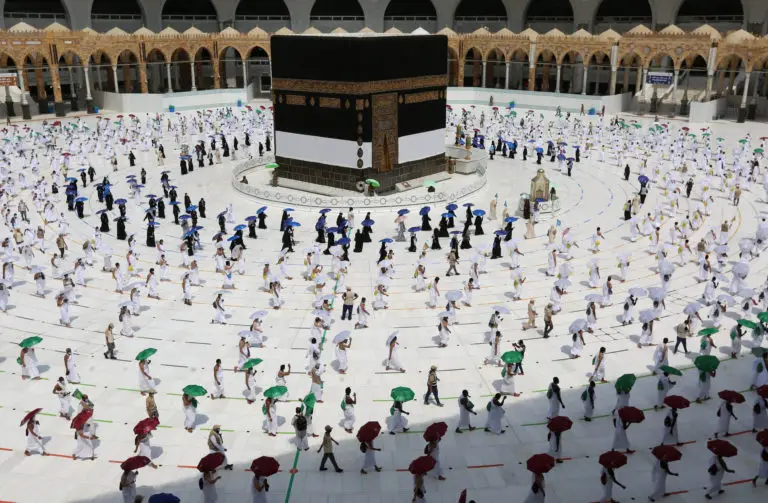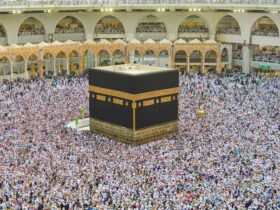Hajj: Nigerian pilgrim welcomes baby boy in Saudi Arabia
A female Nigerian pilgrim in Saudi Arabia on Thursday has become the first to put to birth naturally during the 2023 Hajj exercise.
The Saudi Arabia Ministry of Health confirmed this in a statement, noting that the pilgrim gave birth to a baby boy naturally when all the pilgrims were at Mina observing the pilgrimage, adding that the baby had been named Abdul Rahman.
As a rule in the Holy Land, pregnant women are not allowed to participate in Hajj exercise, as a result of this, the National Hajj Commission of Nigeria had introduced a compulsory pregnancy test to ascertain the status of female pilgrims before issuance of visas.
Meanwhile, the national medical team of Hajj mission recently regretted how 75 pregnant women, who deliberately bypassed the compulsory pregnancy test, sneaked into the Kingdom with the intention of performing the spiritual exercise.
The Saudi Health Ministry explained that the first childbirth from a Nigerian pilgrim took place at the country’s Maternity And Children Hospital in Makkah during the peak period of the Hajj exercise.
The statement read, “the patient was received from the hospital emergency room by an ambulance and she was 39 weeks pregnant. She was suffering from labour pains before childbirth.
“Praise be to God, she gave birth naturally, and she is in good health, praise be to God. The Nigerian woman expressed her deep thanks and gratitude to the medical staff for the excellent care for her and her child.
“It is noteworthy that the maternity hospital yearly receives a number of deliveries during the Hajj, to whom it gives all attention and care.”
The Head of medical team, Dr. Usman Galadima, while speaking with newsmen on Makkah disclosed that expectant women were intentionally prohibited from pilgrimage to prevent unforeseen circumstances as a result of overbearing weather condition and rigorous ritual exercise.
Dr Galadima explained further that some of the pregnant pilgrims, who were referred to the Saudi hospital for treatment, might have been exposed to dangerous illnesses and further exposed to underlining sicknesses without coming in hand with appropriate medication.
He stated that though the Saudi officials usually allowed drugs with prescriptions that were placed in their original packs, he regretted that most of the medicines were usually seized at Nigerian airports.









Leave a Reply